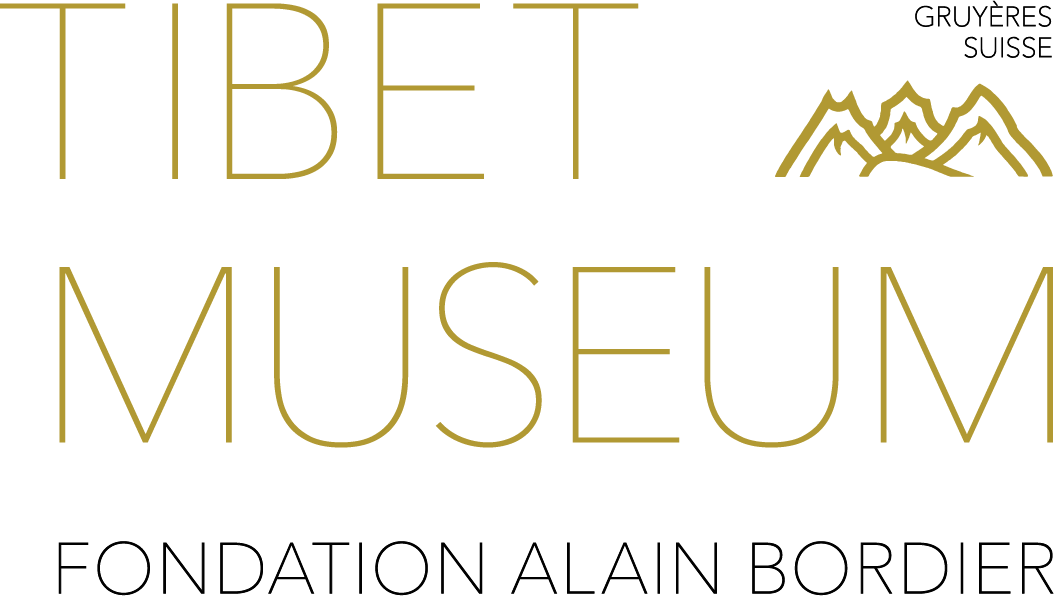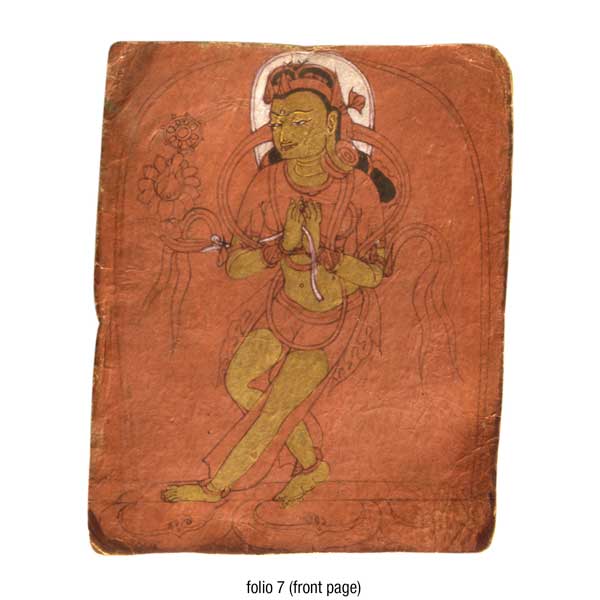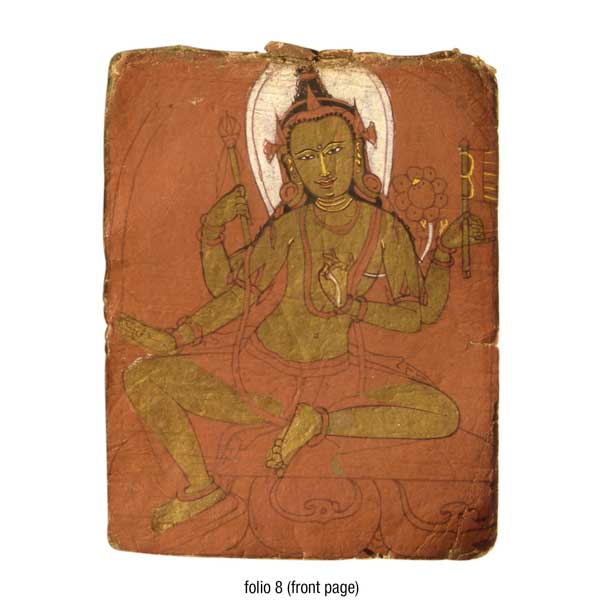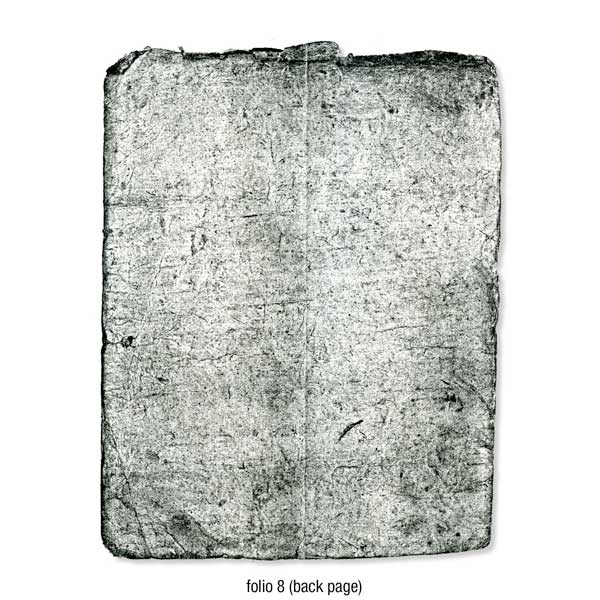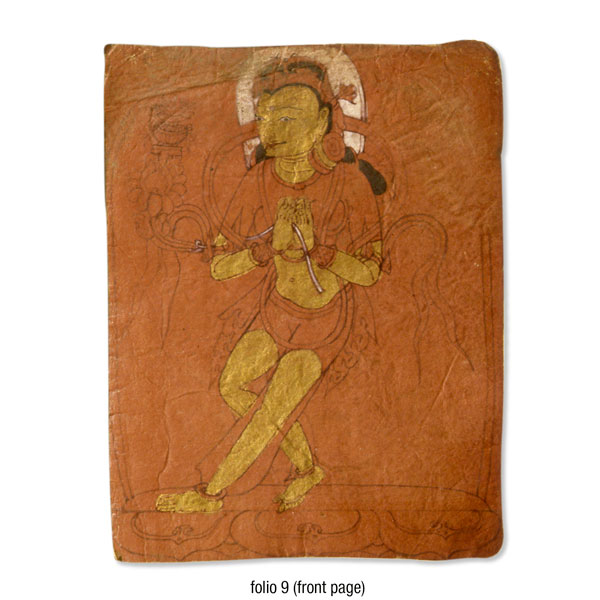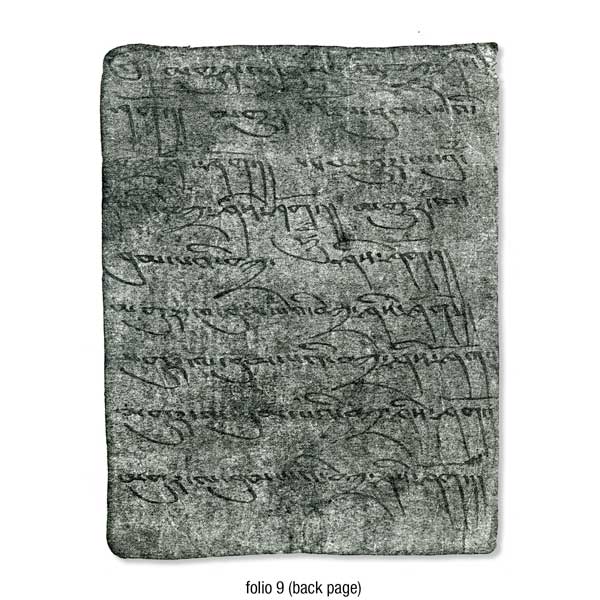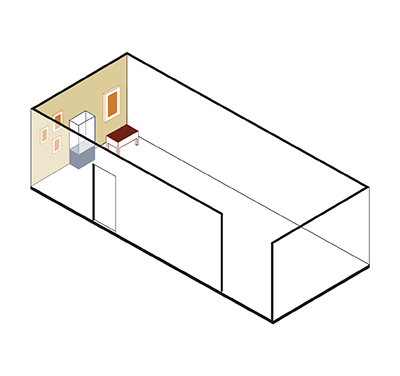ABM 013
Code: ABM 013
Country: Tibet
Style:
Date: 1250 - 1300
Dimensions in cm WxHxD: 8 x 10
Materials: Buff paper
Red Tsa ka li («tsakli») initiation card depicting a deity of the Sarvadurgatiparishodhana Tantra
Folio A: Chakra (Tib.: ’Khor lo ma) inscribed: zhabs la (feet) 'khor lo (Chakra).
Folio B: Unidentified four-armed form of Avalokiteshvara (?) not inscribed.
Folio C: Kalasi (Tib.: Bum pa ma). Inscribed: mgur (song) la bum pa (vase). Two cards depict two of the “eight auspicious objects”: (astama gala): wheel (Chakra), parasol (chattra), banner (dhvaja), water-jar (kalasha), pair of fish (matsyayugma), lotus flower (padma), conch (sa kha), and the endless knot (shrivatsa).
Folio 4: Jambhala.
Folio A: Chakra (Tib.: ’Khor lo ma) inscribed: zhabs la (feet) 'khor lo (Chakra).
Folio B: Unidentified four-armed form of Avalokiteshvara (?) not inscribed.
Folio C: Kalasi (Tib.: Bum pa ma). Inscribed: mgur (song) la bum pa (vase). Two cards depict two of the “eight auspicious objects”: (astama gala): wheel (Chakra), parasol (chattra), banner (dhvaja), water-jar (kalasha), pair of fish (matsyayugma), lotus flower (padma), conch (sa kha), and the endless knot (shrivatsa).
Folio 4: Jambhala.
